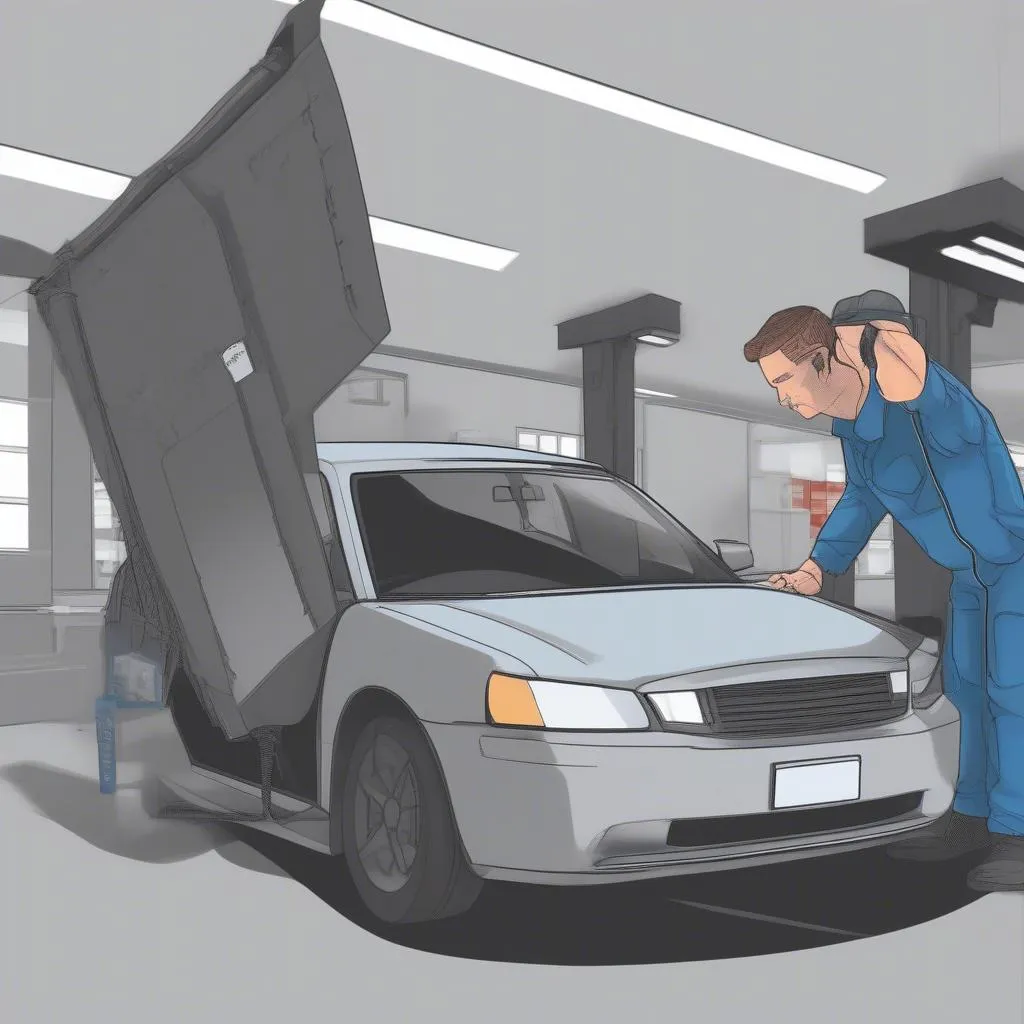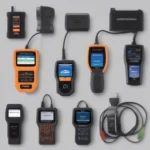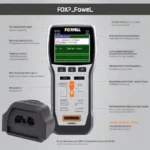Choosing the right OBD2 scanner in the UK can feel like navigating a maze of technical jargon and confusing specs. Whether you’re a DIY mechanic tackling car troubles head-on or a seasoned pro seeking advanced diagnostics, finding the perfect scanner to fit your needs and budget is crucial.
This comprehensive guide cuts through the noise, providing you with the information you need to make an informed decision. We’ll explore the different types of OBD2 scanners available in the UK, key features to consider, and top recommendations for various needs, empowering you to choose the best OBD2 scanner for your vehicle.
Understanding OBD2 Scanners: A Quick Overview
Before we dive into the specifics, let’s clarify what an OBD2 scanner is and why it’s an essential tool for any car owner.
OBD2 stands for On-Board Diagnostics, generation two. It’s a standardized system implemented in most vehicles manufactured after 1996 in the UK. The OBD2 port, typically located under the dashboard on the driver’s side, acts as your car’s communication hub, providing valuable insights into its health and performance.
An OBD2 scanner, also known as a code reader, plugs into this port and retrieves diagnostic trouble codes (DTCs) stored by your car’s computer. These codes, often cryptic combinations of letters and numbers, pinpoint potential issues with your engine, transmission, emissions system, and more.
Why Do You Need an OBD2 Scanner in the UK?
Owning an OBD2 scanner can save you time, money, and unnecessary headaches in the long run. Here’s why:
- Diagnose Car Problems: Decipher those frustrating “Check Engine” lights and identify potential problems before they escalate into costly repairs.
- Reset Warning Lights: After resolving an issue, you can use the scanner to clear the DTCs and turn off warning lights.
- Monitor Vehicle Performance: Track vital engine parameters like speed, RPM, coolant temperature, and fuel economy.
- Enhanced DIY Maintenance: Perform basic car maintenance tasks like oil changes and sensor checks with more confidence.
- Negotiating Power: Having access to your car’s diagnostic information can give you an upper hand when discussing repairs with mechanics, ensuring transparency and fair pricing.
Types of OBD2 Scanners Available in the UK
The UK market offers a wide array of OBD2 scanners, each catering to different needs and budgets. Let’s break down the most common types:
1. Basic Code Readers
- Ideal for: Car owners seeking a simple and affordable solution to read and clear basic DTCs.
- Features: Retrieve and display generic OBD2 codes, often with brief descriptions of the potential issues.
- Price Range: £15 – £50
2. Enhanced Code Readers
- Ideal for: DIY enthusiasts who want more detailed information about DTCs and some additional functionalities.
- Features: Read and clear generic and manufacturer-specific codes, display live data stream, freeze frame data, and some may include ABS and airbag code reading capabilities.
- Price Range: £30 – £100
3. Professional OBD2 Scanners
- Ideal for: Professional mechanics and experienced DIYers requiring advanced diagnostic capabilities.
- Features: Offer a comprehensive suite of functions, including bi-directional control (performing actuations), advanced coding and programming, ECU flashing, and access to manufacturer-specific systems.
- Price Range: £100 – £1000+ (can go much higher for specialized models)
4. Bluetooth OBD2 Scanners
- Ideal for: Users who prefer a wireless experience and want to utilize smartphone apps for data analysis.
- Features: Connect to your smartphone or tablet via Bluetooth, allowing you to access diagnostic information through dedicated apps that often offer enhanced data visualization and analysis.
- Price Range: £20 – £80
Choosing the Right OBD2 Scanner: Key Factors to Consider
With so many options available, selecting the right OBD2 scanner can be overwhelming. Here are crucial factors to guide your decision:
1. Vehicle Compatibility
While most OBD2 scanners are compatible with a wide range of vehicles sold in the UK, it’s essential to double-check compatibility with your specific make, model, and year before purchasing.
2. Functionality
Determine your needs and the level of diagnostic depth you require. Are you looking for basic code reading and clearing or more advanced features like live data streaming and bi-directional control?
3. User Friendliness
Consider the scanner’s interface and ease of use. Opt for a scanner with a clear display, intuitive navigation, and straightforward instructions.
4. Software and Updates
Some scanners, especially professional-grade models, require software updates to remain compatible with the latest vehicle models and access new features. Check for software availability, update frequency, and any associated costs.
5. Budget
OBD2 scanners come in a wide price range. Establish a budget beforehand to narrow your choices and focus on models offering the best value for your needs.
Expert Insights
“Investing in a quality OBD2 scanner is like having a personal mechanic in your pocket,” says John Davies, a seasoned automotive engineer with over 20 years of experience. “It empowers car owners to take control of their vehicle’s health, saving them from unnecessary trips to the mechanic and potentially expensive surprises down the road.”
Conclusion
An OBD2 scanner is an invaluable tool for any car owner in the UK, empowering you with the knowledge and control to tackle car troubles head-on. By understanding the different types of scanners available, considering your specific needs, and focusing on key factors like compatibility and user-friendliness, you can confidently choose the best OBD2 scanner to keep your vehicle running smoothly for miles to come.
FAQs
1. Will an OBD2 scanner work on my car?
Most cars manufactured in the UK after 1996 are equipped with the OBD2 system. However, it’s crucial to check the scanner’s compatibility with your specific make, model, and year to ensure seamless operation.
2. Can I use an OBD2 scanner from another country in the UK?
While most OBD2 scanners adhere to international standards, there might be regional variations in protocols or connectors. It’s best to choose a scanner specifically marketed for use in the UK to avoid compatibility issues.
3. Do I need a professional mechanic to use an OBD2 scanner?
Not necessarily. Many OBD2 scanners, especially basic and enhanced models, are designed for user-friendliness. They come with clear instructions and intuitive interfaces, allowing even novice users to read and clear codes with ease. However, professional-grade scanners often require more technical expertise.
4. Can an OBD2 scanner fix my car problems?
An OBD2 scanner is a diagnostic tool, not a repair tool. It helps you identify potential issues but doesn’t fix them directly. You’ll still need to address the underlying mechanical or electrical problems causing the DTCs.
5. How often should I use my OBD2 scanner?
It’s a good practice to scan your vehicle periodically, even if you don’t notice any warning lights. Regularly scanning can help detect potential issues early on, preventing them from escalating into major problems and ensuring optimal vehicle performance.
Need Further Assistance?
For personalized guidance in selecting the perfect OBD2 scanner for your needs, our expert team is here to assist you. Contact us via WhatsApp: +1(641)206-8880 or email us at [email protected]. We offer 24/7 customer support to answer all your OBD2 scanner queries.


